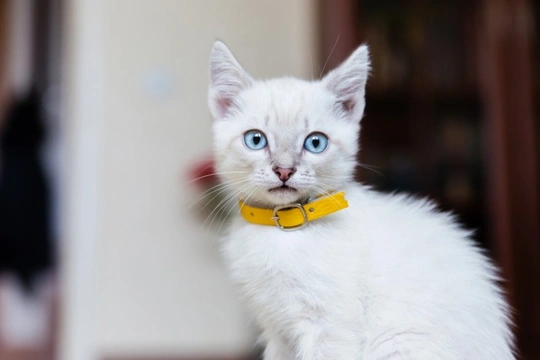
Five important things to do when you get a new kitten
Buying or adopting a new kitten can be one of the most exciting, rewarding things that you can do, and getting a kitten rather than an older cat means that you will get to know them from a young age. This in turn gives you the chance to make sure that their formative first year passes in the right way, while enjoying getting to know your new cat as they grow up.
It is of course really important to make sure that you do plenty of research before you make a decision on what type of kitten to buy, and so, know what to expect and how to manage their first year with you properly. However, when you have done all of this and first bring your new kitten home and let them out into your home with their food bowls all ready and a nice bed waiting for them, many new kitten owners experience a moment of panic, wondering what comes next, and what they can do to ensure that the kitten feels happy and comfortable.
In this article, we will look at five important things that you should do when you first get your new kitten, in order to ensure that they settle in happily and that you start as you mean to go on. Read on to learn more.
Establish boundaries
First things first, it is a good idea to decide on the boundaries when you very first get your kitten, in terms of places they are not allowed to go or things that they are not allowed to do. This may include things like not being allowed into certain rooms of the house, not being allowed onto the beds, or being kept out of certain areas.
Look at this with a view to not only convenience but safety-for instance, keep your kitten from attempting to jump onto the worktops while they are still too small to manage it, rather than having to deal with the issue when they are taller, and might potentially land on a lit hob!
Make a quiet space
Welcoming your new kitten and making them feel comfortable involves reassuring them that they are safe and secure, making them comfortable, and equally importantly, giving them time and space to adjust to their new home.
When cats feel overwhelmed, scared or outside of their comfort zones, they like to hide, and this is something that you should not only allow them to do when they need to, but make efforts to accommodate.
A small kitten can squeeze into all sorts of tiny nooks and crannies that you might not even have thought of, which can cause panic when you can’t find them and are wondering if they have somehow managed to get outside. Provide them with a comfortable, covered bed or other snug hidey-hole that they can use, and don’t bother them when they use it.
Have a plan for feeding
Find out from the breeder what your kitten is used to eating, and decide what you ultimately want to feed them-and have a plan for how you are going to switch them over to their new diet. This is something that should be done very gradually, and so keep feeding them the same food that they are used to for at least the first few days of their time with you, and then begin to phase in the new food very gradually so that your kitten’s system has the chance to get used to it.
Have a plan for the first few nights
When you get home and get your new kitten out of the box, “what happens next?” is often the first thought many new kitten owners have, as the responsibility of the tiny life that you are now responsible for begins to kick in!
A lot of handling the first few days with your new kitten will involve taking your lead from the kitten itself, in terms of seeing how they settle, where and when they want to sleep and how they feel about it all. However, having a plan regarding what will happen at bedtime and if you have to go out etc. is a good idea too.
Other animals
If you have other pets, how and when they meet the new kitten is something that you should plan carefully. If you have a dog, you must make sure that they are comfortable and safe with cats before you even consider getting a kitten-getting a dog used to a newcomer is challenging enough, without having to wonder about how your dog will react and if your kitten will be safe.
Keep other animals apart from your kitten for at least the first few days, and manage introductions carefully, be that with other cats or dogs.
Make sure that both the kitten and other pets have their own space, and do not have to be forced together.



